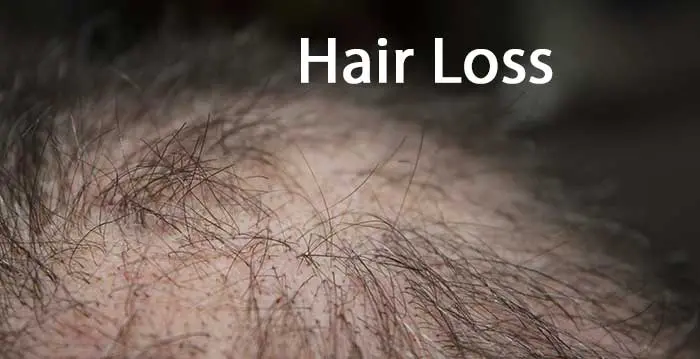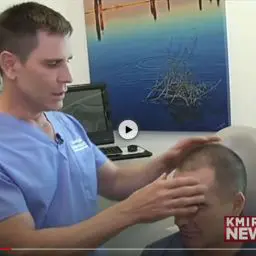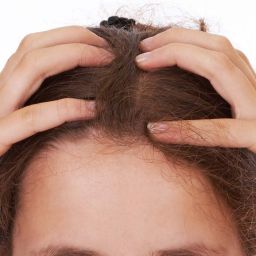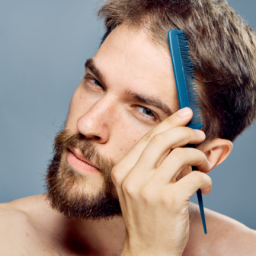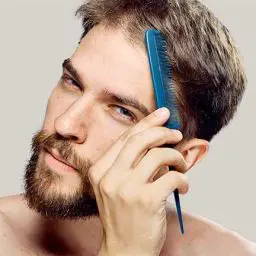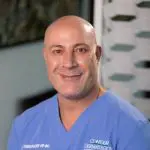Regrow Your Hair With Effective Hair Loss Treatments at Contour Dermatology
Medical Dermatology
Contour Dermatology and Cosmetic Surgery Center’s hair loss doctors want to help you combat your thinning or balding hair. We understand how important your hair can be to your appearance and your sense of self, and it is our goal to help you achieve natural-looking results as quickly as possible. Find a location near you and speak with us about our hair loss treatments for women and men.
Restore a Fuller Head of Hair: Customized Hair Loss Solutions
Here at Contour Dermatology, we know your health care is a personalized path that will look different from every other client. From the start of our partnership, we will develop a custom treatment plan that addresses your needs directly. Our hair loss treatments meet you where you are now and help you minimize the chances of future balding or hair thinning.
Advanced Hair Loss Treatments for Men and Women
Our comprehensive services address a full range of hair concerns, including different types of alopecia. Alopecia refers to any kind of hair thinning or loss. In most cases, alopecia is benign, but it can indicate another condition, which is why you should connect with the professionals at Contour Dermatology and Cosmetic Surgery Center.
Even if it is not a health concern, it can make a difference in your appearance and self-confidence. Let us help you determine the cause of your hair loss and find the best treatment moving forward.
Androgenic Alopecia
Androgenic Alopecia, also known as male pattern baldness, is the most common form of hair loss and can affect women as well as men. Its cause is not fully understood, although it is known that androgenic hormones such as testosterone play a role. Testosterone stimulates hair growth, and men and women with early-onset androgenic alopecia have lower-than-normal androgen levels.
However, with age, these same hormones begin to inhibit hair growth on the crown and frontal scalp while continuing to stimulate it elsewhere. This process does not occur in everyone, however, so genetics must play a role. This mix of imbalanced androgen levels, age, and genetics results in hair follicles gradually shrinking and eventually becoming dormant.
The most effective treatments for androgenic alopecia involve the use of minoxidil (Rogaine) and finasteride (Propecia and Proscar). Hair transplantation procedures work very well to create the appearance of normal hair. There are many other proposed treatments by both medical professionals and others, such as dietary supplements, vitamins and laser/light treatments.
Most of these other treatments are either new and unproven (such as laser/light treatments) or show little to no effectiveness (such as dietary supplements and vitamins). If you believe you have androgenic alopecia, consult your dermatologist to explore your treatment options.
Effluvium
Effluvium, a word that means “outflow”, describes a type of hair loss caused by a disruption in the normal cycle of hair growth. Hair follicles follow a pattern of hair growth (typically 1-2 years) followed by a period of dormancy in which the hair fiber falls out and no hair is produced (typically 1-2 months). In a normal scalp the vast majority of hair follicles are in the growth phase and a consistent level of hair is maintained. However, when an abnormally large portion of hair follicles enter the resting state the result is temporary thinning of the hair known as telogen effluvium.
This form of hair loss is typically triggered by a major event that “shocks” the hair follicles into a resting state. Giving birth, a car crash, surgery, reaction to medication, other diseases, and anything that causes extreme stress can all result in telogen effluvium. Hair loss is seen 1-2 months following the event and can persist for many months until the hair follicles reactivate. Most cases of telogen effluvium require no treatment as the hair will begin to regrow naturally. In cases where hair loss is persistent, consulting with a doctor can help isolate the cause of telogen effluvium.
A similar kind of hair loss, known as anagen effluvium, is a reaction to a toxin such as rat poison or cytostatic cancer drugs. These chemicals inhibit rapid cell proliferation – a necessary component of hair growth. This type of effluvium sets on very rapidly but resolves just as rapidly once the chemical causing it is discontinued.
Alopecia Areata
Alopecia areata is a poorly understood form of hair loss that is caused when the body’s immune system incorrectly recognizes hair follicles as a threat to the body and attacks them, resulting in patches of hair loss. It is unknown what triggers the immune system in these cases.
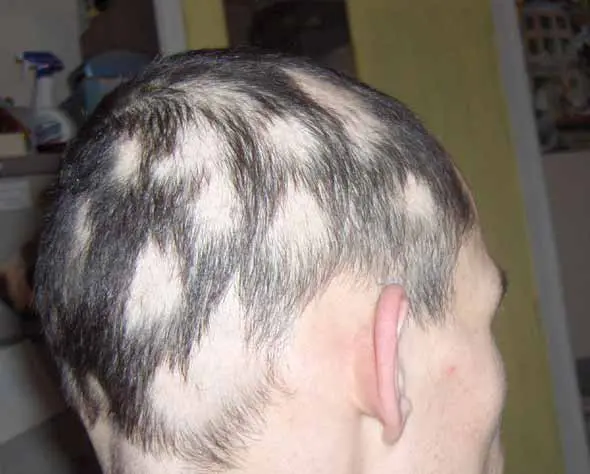
Alopecia Areata
In most individuals alopecia areata manifests as a round patch of hair loss on the scalp, though in extreme cases it can affect the entire scalp or other areas of the body. Almost all cases of alopecia areata resolve within two years with or without treatment. Most treatments for this condition involve topical steroid or steroid injections, though for some individuals no treatment is effective.
Cicatricial Alopecia (Scarring Alopecia)
Scarring alopecia describes hair loss due to the creation of scar tissue in areas of normal hair growth. There are many kinds of diseases that can create scar tissue such as folliculitis decalvans, dissecting cellulitis, or even lupus erythematosus. Whatever the cause, the scarring results in the destruction of the hair follicle and permanent hair loss. Treatment of cicatricial alopecia depends on the disease causing the scarring. Once the disease is resolved and only the scars remain, the bald patches can be successfully treated by simply surgically removing the bald patches if they are small, or through the use of hair transplant procedures in large patches.
Infection
Skin infections in areas of normal hair growth can result in temporary baldness. The most common causes are fungal infections (ringworm or piedra), folliculitis, microscopic parasites, or severe seborrheic dermatitis. Treatment for this form of hair loss depends on the infection causing it, but almost all can be easily treated by a dermatologist.
Other Causes
There are multitudes of congenital genetic disorders that can result in varying degrees of hair loss, ranging from the complete inability to grow hair to weak hair follicles to small patches of persistent baldness. Most are extremely rare but also difficult to treat. Finally, a very common cause of hair loss is not through any kind of disease or condition, but through the overuse of cosmetic products. Straightening, dyeing, bleaching and many other popular cosmetic treatments damage hair fibers and/or hair follicles.
Target Hair Loss at Its Source: Effective Treatment Strategies
Whether the cause is genetic, due to another condition or otherwise undefined, Contour Dermatology and Cosmetic Surgery Center offers alopecia treatment for adults of every age and gender. We look at the cause of your condition and use it to guide us to solutions like:
- Medications or steroids: We provide topical, oral and injection forms of many medications.
- Hormone therapy: If androgenic alopecia is the cause of your hair loss, hormone supplements may help.
- Hair transplants: Severe cases may require hair transplants to correct thinning or bald spots.
Your Journey to Hair Restoration Starts Here
Discover your path to fuller, thicker hair with the experienced providers at Contour Dermatology and Cosmetic Surgery Center. Schedule an appointment today and let us work together to find the right solution for your hair loss. We will start working on your custom solution right away to help you rediscover your self-confidence.


